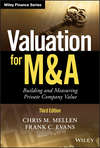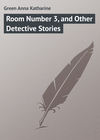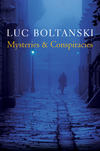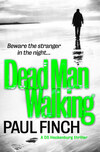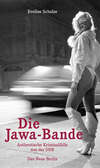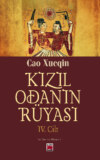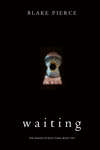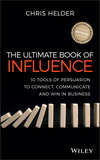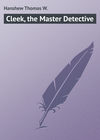Kitabı oku: «Cleek of Scotland Yard: Detective Stories», sayfa 12
CHAPTER XIX
It had gone two o’clock. The morning’s work was done, a hasty luncheon disposed of, and the investigators were back in the dockmaster’s house discussing the curious features of the case again.
“And now, gentlemen,” said Cleek, “to the unsolved part of the riddle – the mysterious manner in which the messages were sent from this house. For sent from here they undoubtedly were, and by Sophie Borovonski; but the question of how still remains to be discovered.”
“I make it that it’s the devil’s own work, Mr. Cleek,” said MacInery, “and that there must have been some accident connected with it, the same as with the taking off of the wire-tapping chap.”
“Hardly that, I’m afraid,” replied Cleek. “I think it was accident which put a stop to the proceedings here, not one which created them. We now know perfectly well that the woman was in this house – undiscovered and unsuspected for days; and you may safely lay your life that she wasn’t idle, wasn’t stopping here for nothing. The pile of papers burnt shows very clearly that considerable intelligence had been forwarded to her brother, so it is safe to infer that she was wiring it to him constantly.”
“But how was it possible for her to obtain that information?” queried Sir Charles. “I again declare to you most solemnly, Mr. Cleek, that no one entered or left the room, that no word was spoken that could be said to have any bearing upon secret matters, so nothing could possibly be overheard; and how could the woman read documents which were never out of our sight for a minute? Granted that she had some means of wiring intelligence to her brother – indeed, we now know that to have been the case – how under God’s heaven did she obtain that intelligence?”
“Well, that’s a facer, certainly, Sir Charles; but with such a past-mistress of ingenuity as she – well, you never know. Sure she couldn’t possibly have managed to get into the room and hide herself somewhere, you think?”
“I am positive she couldn’t. The thing isn’t possible. There’s no place where she could have hidden. Come in and see.”
He unlocked the door and, followed by the rest, led the way into the room where the inquiry into the dockmaster’s affairs had been held. A glance about it was sufficient to corroborate Sir Charles’s statement.
On one side stood a large fireproof safe, closely locked; on the other were two windows – iron-grilled and with inside shutters of steel; at one end was a large flat-topped table, at which Sir Charles and MacInery had conducted their investigation of the books, et cetera, and at the other a smaller writing-table, upon which stood a typewriter set on a sound-deadening square of felt, and over which hung a white-disked electric bulb. There were five chairs, and not another mortal thing. No cupboard, no wardrobe, no chest – nothing under heaven in which a creature any bigger than a cat could have hidden.
“You see,” said Sir Charles, with a wave of the hand, “she couldn’t have hidden in here, neither could she have hidden outside and overheard, for nothing was said that could have been of any use to her.”
“Quite confident of that?”
“Oh, I can answer for that, Mr. Cleek,” put in young Grimsdick. “We were so careful upon that point that Sir Charles never dictated even the smallest thing that he wanted recorded; merely passed over the papers and said: ‘Copy that where I have marked it’; and to save my table from being overcrowded, I scratched down the marked paragraphs in shorthand, and prepared to transcribe them on the typewriter later. Why, sir, look here; the diabolical part of the mystery is that those two fragments of sentences flashed out at the telegraph office at the time of that frightful peal of thunder, and at that very instant I was in the act of transcribing them on the typewriter.”
“Hello! Hello!” rapped out Cleek, twitching round sharply. “Sure of that, are you – absolutely sure?”
“Beyond all question, Mr. Cleek. Sir Charles will tell you that the thunder-clap was so violent and so sudden that both he and Mr. MacInery fairly jumped. As for me, I was so startled that I struck a wrong letter by mistake and had to rub out a word and type it over again. Come and see. The paper is still on my table, and I can show you the erasure and the alteration. Now, nobody could have seen that paper, at that particular time; not a solitary word had been spoken with regard to it, and it wasn’t more than half a minute before that Sir Charles himself had taken it out of the safe. Look, sir, here’s the paper and here’s the place where I erased the word – see?”
Cleek walked over to the typewriter and looked at the paper, saw the erasure, lifted it, looked at other typed sheets lying under it, and then knotted up his brows.
“H’m!” he said reflectively, and looked farther. “You’ve got a devilish hard touch for a man who does this sort of thing constantly, and ought therefore to be an adept in the art of typewriting evenly. And there are other errors and erasures. Look here, my friend, I don’t believe you’re used to this machine.”
“No, sir, I’m not. I’m not accustomed to a shift key. My own machine hasn’t one.”
“Your own! By Gad! What are you using this machine for, then, if you’ve got one of your own? And why didn’t you bring your own when you came here on important business like this?”
“I did; but as we found this one already here I started in on it; and when I found it difficult to work, I went out to get my own, which I’d left in the outer room, just as I’d taken it from the carrier who brought it over. But the careless beggar must have handled it as if it were a trunk, for the spring was broken, the carriage wouldn’t work, and two of the type bars were snapped off.”
“By Jupiter!” Cleek’s voice struck in so suddenly and with such vehemence that it was almost a bark, like that of a startled terrier, and Mr. Narkom, knowing the signs, fairly jumped at him.
“You’ve found out something, I know!” he cried. “What is it, old chap – eh?”
“Let me alone, let me alone!” flung back Cleek, irritably. “I want the dockmaster! I want him at once! Where is the man? Oh, there you are, Mr. Beachman. Speak up – quickly. Was that ‘Hilmann’ woman ever allowed to enter this room? Did she ever make use of this typewriter at any time?”
“Yes, sir – often,” he replied. “She was one of the best and most careful typists I ever saw. Used to attend to all my correspondence for me and – Good God, man, what are you doing? Don’t you know that that thing’s Government property?”
For Cleek, not waiting for him to finish what he was saying, had suddenly laid hands on the machine, found it screwed fast to the table and, catching up the nearest chair, was now smashing and banging away at it with all his force.
“Government destruction, you mean!” he gave back sharply. “Didn’t I tell you she was a very demon of ingenuity, stupid? Didn’t I say – Victory! Now then, look here – all of you! Here’s a pretty little contrivance, if you like.”
He had battered the typewriter from its fastenings and sent it crashing to the floor, a wreck, not ten seconds before; now, his hand, which, immediately thereafter, had been moving rapidly over the surface of the sound-deadening square of felt beneath, whisked that, too, from the table, and let them all see the discovery he had made.
Protruding from the surface of that table and set at regular intervals there were forty-two needle points of steel – one for each key of the typewriter – which a moment before had pierced the felt’s surface just sufficient to meet the bottom of the “key” above it, and to be driven downward when that key was depressed.
Spectacular as ever in these times, he faced about and gave his hand an outward fling.
“Gentlemen, the answer to the riddle,” he said. “You have been supplying her with the needed information yourselves. A ducat to a door knob, every time a letter was struck on this machine its exact duplicate was recorded somewhere else. Get a saw, Mr. Beachman, and let us see to what these steel points lead.”
They led to a most ingenious contrivance, as it turned out. A highly sensitive spiral spring attached to an “arm” of thin, tough steel beneath the surface of the table communicated with a rigid wire running down the wall behind one of that table’s back legs and, passing thence through a small gimlet-hole in the floor, descended and disappeared.
Following that wire’s course, they, too, descended until, in the fulness of time, the end was reached in a far corner of the cellar underneath the building.
There, behind an upturned empty cask, they came upon yet another wire, which wound upward, and was found afterward to travel out and up beside the “leader” until it joined the private wire of the dockyard just outside the dormer window of what had once been Miss Greta Hilmann’s bedroom. And to these wires – the one descending and the other ascending from behind that empty cask in the cellar – there was a singular contrivance attached. To one, a plain, everyday instrument for dispatching telegrams by the Morse system; to the other, a curious little keyboard which was an exact counterpart of the keyboard to the typewriter upstairs; and besides this there lay some remnants of food from the store cupboard of the house, and a sheaf of paper leaves covered with typewritten characters.
“Gentlemen, the absolute end of the riddle at last,” said Cleek as he took up one of those leaves. “Look at them – Government secrets every one. And I, like an ass, forgot to remember that Nicolo Ferrand was one of the cleverest mechanicians and one of the craftiest ‘wire workers’ that the underworld boasts. Look, Sir Charles; look, Mr. Narkom. Every touch of a letter on the keyboard of the typewriter upstairs registered its exact duplicate on this infernal contrivance down here, and fast as it was recorded, that vixen wired it on to Boris Borovonski. Can’t you understand now why she left her post and flew to him? The shock which killed him and travelled with lessened force down the wire to the telegraph operator was felt here, and the instrument she used was, in all probability, disabled. She knew then, of course, that something had happened to her brother, and in a panic flew to find out what.
“But even the shrewdest slip up sometimes and overlook things. Her foolish slip lay in this: that she forgot to take with her these original drafts of the intelligence she had wired to the dead man.”
“Ah, weel,” said Mr. Alexander MacInery, who, like a true Scotsman, never liked to be found at the small end of the horn upon any occasion, “after all, ’tis no more than I expected. I said it was accident that was at the bottom of it, and accident it’s turned out to be.”
“No doubt,” agreed Cleek, with one of his peculiar smiles. “But, personally, I always like to think that there’s a Power above, and when men —and nations – have played the game squarely – Shan’t we be going upstairs, Sir Charles? Mr. Narkom and I have a long ride back to town, and the afternoon is on the decline.”
It was still farther on that road, however, before he was able to actually tear himself away from the dockyard and be off home; for there were those little legal necessities which are the penalty of dealing with Government affairs to be attended to; there was the boring business of meeting high officials, and listening to compliments and congratulations, and he was really glad when the limousine, answering to orders, rolled up, the final good-byes were said, and he and Mr. Narkom swung off townward together.
But despite the fact that he had just carried to a successful conclusion a case which would go far to enhance his reputation and to hasten the day for which he had so long and so earnestly worked, Cleek was singularly uncommunicative, markedly abstracted, as they rode back through the streets of Portsmouth Town on their way to the highroad; and had the superintendent been more observant and less wrapped up in the glory that was to be theirs as the result of the day’s adventure, he might have discovered that, while his ally seemed to be dozing stupidly when he was not leaning back in a corner and smoking, he was all the time keeping a close watch of the crowded streets through which they were speeding as if looking for some one or something he expected to see. Nor did he relax this peculiar system of vigilance even after the town itself had dropped away into the far distance, and the car was scudding along over the broad stretches and the less-frequented thoroughfares of the open country.
“I shall not go all the way back with you, if you don’t mind, Mr. Narkom,” he said, breaking silence abruptly, as they raced along. “Just set me down at the place where you picked me up this morning, please, and I will do the rest of the journey by train.”
“Cinnamon! Why?”
“Oh, just a mere whim of mine, that’s all. No – don’t press me for an explanation, please. ‘Where ignorance is bliss,’ et cetera. Besides, I’m a whimsical beggar at best, you know – and who bothers to inquire why a donkey prefers thistles to hay? So just drop me down when we reach the outskirts of Guildford, if you will be so kind.”
Mr. Narkom was discreet enough to drop the subject at that and to make no further allusion to the matter until they came, in the fulness of time, to the place in question. Here he called Lennard to a halt, and Cleek alighted – not furtively, nor yet in haste – and, standing beside the car, reached in and shook hands with him.
“Until you want me again,” he smiled in his easy, offhand way. “And if that turns out to be a long time off I shan’t be sorry. Meanwhile, if you wish to do me a favour, look about for a limousine of another make and a quite different colour. I’ve an odd idea that this one is fast coming to the end of its career of usefulness. Good-bye. All right, Lennard – let her go.”
Then the door of the car closed with a smack, and he was off and away – so openly and at such a leisurely pace that it was clear he had neither need nor desire to effect a getaway unobserved.
“Well, I’ll be dashed!” was Mr. Narkom’s unspoken comment upon the proceeding – for, under his hat, he had come to the conclusion that Cleek had, in some way, by some unconfessed means, learned that Waldemar or the Apache had come back into the game and were again on his heels, but had said nothing for fear of worrying him. “Walking off as cool as you please and never the first attempt to come any of his old Vanishing Cracksman’s dodges. Amazing beggar! What’s he up to now, I wonder?”
It is just possible that could he have followed he would have wondered still more, for Cleek was bearing straight down upon the populous portions of the town, and about ten minutes after the two had parted, struck into the High Street, walked along it for a short distance, studying the signs over the various buildings until, sighting one which announced that it was the Guildford Office of the Royal British Life Assurance Society, he crossed the street, and with great deliberation passed in under it, and disappeared from sight.
It was one of the contradictory points of his singularly contradictory character, that whereas he had chafed under the delay in getting away from the Royal dockyard at Portsea because he was eager to get back to his work in the little old walled garden, and all his thoughts were with the flowers he was preparing for her, in the end he did not see the place until after the moon was up, and all hope of gardening for that day had to be abandoned entirely, yet – he came back to Dollops whistling and as happy as a sandboy.
He was up with the first cock crow next morning, and dawn found him plying fork and rake and trowel among the flowers, and positively bubbling over with enthusiasm; for the budding roses were just beginning to show colour and to give promise of full bloom for the day of days – and more than that he did not ask of heaven.
Indeed, it was written that he might not, for the balance had again swung over, the call of Nature again sounded, and the Great Mother, taking him to her bosom, had again merged the Man in the Idealist and cradled him into forgetfulness of all spells but hers. So that all through the day he went in and out among his flowers whistling and singing and living in a sort of ecstasy that ran on like a dream without end.
On the morrow the little garden was all finished and ready, and nothing now remained but to sit in idleness and wait.
CHAPTER XX
May had smiled itself out and June had blushed itself in – the most wondrous June, in Cleek’s eyes, the world had ever seen. For the long waiting was over, the old order of things had changed, the little house in the meadowlands had its new tenant, and she was in England again.
It did not fret him, as it otherwise might have done, that he and Dollops had been obliged to go back to the old business of lodging a week here and a week there in the heart of the town, rather than within reach of the green trees and the fragrant meadows he loved, for always there was the chance of stealing out to meet her in the glorious country-lands when the evening came, or of a whole day with her in the woods and fields when a whole day could be spared; and to a nature such as his these things were recompense enough.
Not that many days could be spared at present, for, although nothing had been seen or heard of Waldemar or the Apaches for weeks on end, these were strenuous times for Mr. Narkom and the forces of the Yard, and what with the Coronation of his Majesty close at hand, and every train discharging hordes of visitors into London day in and day out, and crooks of every description – homemade as well as imported – from the swell mobsman down to the common lag making it the Mecca of an unholy pilgrimage – they had their hands filled to overflowing, and were worked to their utmost capacity.
The result, so far as Cleek was concerned, scarcely needs recording. It was not in him to be guilty of that form of snobbishness which is known as “standing on his dignity” at such a time – when the man who had stood his friend was in need of help, indeed, might lose his official head if he were found wanting in such a crisis – so that, naturally, he came to Mr. Narkom’s assistance and took a hand in the “sorting out” process in the manner – yes, and at times, in the uniform, too – of the ordinary constable, and proved of such invaluable aid in the matter of scenting out undesirables and identifying professional crooks that things speedily fell into a more orderly shape, and he had just begun to look forward to a resumption of those happy days of wandering in the woods with Ailsa when out of the lull of coming peace there fell an official bombshell.
It took the form of a cablegram – a belated cipher communication from the police of America to the police of Great Britain – which on being decoded, ran thus:
“Just succeeded in tracing 218. Sailed ten days ago on Tunisian– Allan Line – from Canada, under name of Hammond. Woman with him. Handsome blonde. Passing as sister. Believed to be 774.”
Now as this little exchange of courtesies relative to the movements of the noted figures of the underworld is of almost daily occurrence between the police systems of the two countries in question, Mr. Narkom had only to consult his Code Book to get at the gist of the matter; and when he did get at it, his little fat legs bent under him like a couple of straws, his round little body collapsed into the nearest chair, and he came within a hair’s breadth of having a “stroke.”
For the Tunisian, as it happened, had docked and discharged her passengers exactly thirteen hours before, so that it was safe to declare that the persons to whom those numerals alluded had unquestionably slipped unchallenged past the guardians of the port, and were safely housed at this minute within the intricacies of that vast brick-and-mortar puzzle, London; yet here they were registered in the Code Book, thus:
“No. 218 – Nicholas Hemmingway, popularly known as ‘Diamond Nick.’ American. Expert swindler, confidence man and jewel thief. Ex-actor and very skilful at impersonation. See Rogues’ Gallery for portrait.
“No. 774 – Ella Plawsen, variously known to members of the light-fingered fraternity as ‘Dutch Ella’ and ‘Lady Bell.’ German-American. Probably the most adroit female jewel thief in existence. Highly educated, exceedingly handsome, and amazingly plausible and quick witted. Usually does the ‘society dodge.’ Natural blonde, and about twenty-five years old. No photograph obtainable.”
Within forty-five minutes after Mr. Narkom had mastered these facts he had rushed with them to Cleek, and there was a vacancy in the list of special constables from that time forth.
“Slipped in, have they?” said Cleek when he heard. “Well, be sure of one thing, Mr. Narkom: they will not have gone to a hotel – at least in the beginning – they are far too sharp for that. Neither will they house themselves in any hole and corner where their sallying forth in fine feathers to make their little clean-up would occasion comment and so lead to a clue. Indeed, I shouldn’t be surprised if they were far too shrewd to remain together in any place, but will elect to operate singly, appear to have no connection whatsoever, while they are here, and to have a sort of ‘happy reunion’ elsewhere after their little job has been pulled off successfully. But in any case, when we find them – if we ever do – depend upon it they will be located in some quiet, respectable, secluded district, one of the suburbs, for instance, and living as circumspectly as the most prudish of prying neighbours could desire.
“Let us then go in for a series of ‘walking tours’ about the outlying districts, Mr. Narkom, and see if we can’t stumble over something that will be worth while. It is true I’ve never met nor even seen Hemmingway, but I fancy I should know if a man were made up or not for the rôle in which he appears. I did, however, brush elbows with Dutch Ella once. It was that time I went over to New York on that affair of the Amsterdam diamonds. You remember? When I ‘split’ the reward with the fellow from Mulberry Street, whose daughter wanted to study music as a profession and he couldn’t afford to let her. I hobnobbed with some acquaintances of the – er – old days, over there, and went one night to the big French Ball at the Academy of Music, where, my companion of the night told me, there would be ‘a smashing big clean-up, as half the swell crooks in town would be there – for business.’
“They were, I dare say, for he kept pointing out this one and that to me and saying, ‘That’s so and so!’ as they danced past us. I shouldn’t know any of them again, so far as looks are concerned, for the annual French Ball in New York is a masked ball, as you are, perhaps, aware; and I shouldn’t know ‘Dutch Ella’ any better than the rest, but for one thing – although I danced with her.”
“Danced with her, Cleek? Danced?”
“Yes. For the purpose of ‘getting a line on her shape,’ so to speak, for possible future reference. I couldn’t see her face, for she was masked to the very chin; but there’s a curious, tumor-like lump, as big as a hen’s egg, just under her right shoulder-blade, and there’s the scar of an acid burn on the back of her left hand that she’ll carry to her grave. I shall know that scar if ever I see it again. And if by any chance I should run foul of a woman bearing one like it, and that woman should prove to have also a lump under the right shoulder-blade – Come along! Let’s get out and see if we can find one. ‘Time flies,’ as the anarchist said when he blew up the clock factory. Let’s toddle.”
They “toddled” forthwith, but on a fruitless errand, as it proved. Nevertheless, they “toddled” again the next day as hopefully as ever; and the next after that, and the next again, yet at the end of the fourth they were no nearer any clue to the whereabouts of Dutch Ella and Diamond Nick than they had been in the beginning. If, as Cleek sometimes fancied, they had not merely passed through England on their way to the Continent, but were still here, housed like hawks in a safe retreat from which they made predatory excursions under the very noses of the police, there was nothing to signalize it. No amazing jewel theft, no affair of such importance as one engineered by them would be sure to be, had as yet been reported to the Yard; and for all clue there was to their doings or their whereabouts one might as well have set out to find last summer’s roses or last winter’s snow as hope to pick it up by any method as yet employed.
Thus matters stood when on the morning of the fifth day Cleek elected to make Hampstead Heath and its environments the scene of their operations, and at nine o’clock set forth in company with the superintendent to put them into force in that particular locality, with the result that by noontime they found themselves in the thick of as pretty a riddle as they had fallen foul of in many a day.
It came about in this way:
Turning out of St. Uldred’s road into a quiet, tree-shaded avenue running parallel with the historic heath, somewhere in the neighbourhood of the Vale of Health district, they looked up to discover that there was but one building in the entire length of the thoroughfare – a large, imposing residence set back from the road proper, and encircled by a high stone wall with curiously wrought iron gates leading into the enclosure – and that before that building two copper-skinned, turbaned, fantastically clothed Hindus were doing sentry duty in a manner peculiar unto themselves – the one standing as motionless as a bronze image before the barred gateway, and the other pacing up and down before him like a clockwork toy that had been well wound up.
“The Punjab for a ducat!” declared Cleek as he caught sight of them. “And the insignia of the Ranee of Jhang, or I’m a Dutchman. I knew the old girl was over here for the coronation, to be sure, but I’d no idea of stumbling over some of her attendants in this quarter, by Jip! Not putting up out here of late, is she, Mr. Narkom?”
“No. She’s still at Kensington. And what the dickens those johnnies are keeping guard over that place for beats us. Know it, don’t you? It’s the residence of Sir Mawson Leake – Leake & Leake, you know: Jewellers, Bond Street. Fine old place, isn’t it? Inherited it from his father, as he did the business, and – What’s that? No, not a young man – not a young man by any means. Grown children – two sons. One by his first wife, and – Hullo! that’s a rum trick, by James! See that, did you, old chap?”
“See what? The manner in which that clockwork johnnie stopped in his tracks and eyed us as we passed?”
“No. The woman. All muffled up to the eyes – and in weather like this. Just stepped out of the house door, saw those two niggers, and then bolted back indoors as if the Old Boy was after her.”
“Caught sight of us, very likely. You know what high-class Brahmans are where Europeans are concerned. It will be the old Ranee herself, three to one, paying a morning visit to the jeweller in reference to some of her amazing gems. That would explain the presence of the sentries. She travels nowhere without a guard.”
“To be sure,” admitted the superintendent, and walked on, dropping the matter from his mind entirely.
Ten minutes later, however, it was brought back to it in a rather startling manner; for, upon rounding the end of the thoroughfare along which they had been walking, and coming abreast of an isolated building (which was clearly the stable of the house they had recently passed), they were surprised to hear the sound of a muffled cry within, to catch a whiff of charcoal smoke as the door was flung wildly open by the same muffled female Mr. Narkom had observed previously, and something more than merely startled to have her rush at them the instant she caught sight of them, crying out distractedly:
“I was afraid of it, I knew it! I knew that he would! Oh, help me, gentlemen – help me for the love of God! I can’t lift him. I can’t drag him out – he is too heavy for me! My husband! In there! In there! He’ll die if you don’t get him out!”
They understood then, and for the first time, what she was driving at, and rushed past her into the stable – into what had once been designed for a coachman’s bedroom – to find an apartment literally reeking with the fumes that poured out from a charcoal furnace on the floor, and beside that the body of a man – inert, crumpled up, fast sinking into that hopeless state of unconsciousness which precedes asphyxiation by charcoal.
In the winking of an eye Cleek had caught up the deadly little firebrick furnace and sent it crashing through the plugged-up window into the grounds behind, letting a current of pure air rush through the place; then, while Narkom, with one hand over his mouth and nostrils, and the other swinging a pair of handcuffs by their chain, was doing a like thing with another window in the front wall, he gathered up the semi-conscious man, swung him sacklike over his shoulder, carried him out into the roadway, and propped him up against the side of the stable, while he chafed his hands and smacked his cheeks and, between times, fanned him with his hatbrim and swore at him for a “weak-backed, marrowless thing to call itself a man, and yet go in for the poltroon’s trick of suicide!”
The woman was still there, squeezing her hands and sobbing hysterically, but although she had not as yet uncovered her face, it did not need that to attest the fact that she was no Hindu, but white like the man she had spoken of as her husband, and at the very first words she uttered when she saw that he was beyond danger, both Cleek and Narkom knew them for what they were – Sir Mawson and Lady Leake.
“Mawson, how could you!” she said reproachfully, going to him the very instant he was able to get on his feet, and folding him to her in an agonized embrace. “I suspected it when you left the house – but, oh, how could you?”
“I don’t know,” he made answer, somewhat shamefacedly yet with a note of agony in his voice that made one pity him in spite of all. “But it seemed too horrible a disgrace to be lived through. And now I shall have to face it! Oh, my God, Ada, it is too much to ask a man to bear! They are there, on guard, those Hindus, protecting me and mine until the Ranee’s steward comes to receive the Ladder of Light, as promised, at – ”

